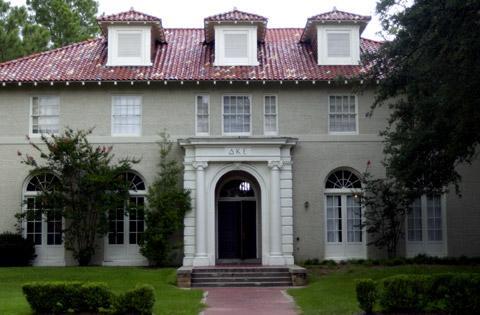Exchanges. Hazing. Service projects. Alcohol. There are different ideas associated with Greek organizations.
But with another fraternity being removed from campus, questions have arisen about the quality of these organizations.
The Delta Kappa Epsilon fraternity recently was removed from campus.
Victor Felts, Greek Affairs director, said the University has not taken any action against the fraternity.”
Felts said DKE had requested a hearing regarding a probation violation, but before the hearing could take place, the fraternity’s alumni board decided to close the chapter for two years.
Ken Rafferty, chairman of DKE’s alumni board, said the board decided to close the fraternity and make assessments before moving forward.
“We’ve always prided ourselves on the past, but now we need to look at the future,” Rafferty said. “The Greek system is a different world, and we felt we needed to regroup.”
Rafferty said the removal was not because of any violations.
“We’ve been talking about it for a couple of years,” Rafferty said. “We wanted to take everything into account and make sure that our guys realize it is not just guys drinking beer in a fraternity.”
Felts said DKE’s removal is effective August 1. After that time, the fraternity house will be renovated and no other fraternity will inhabit it.
The removal of DKE is only one of several problems facing Greek organizations. The University removed the Delta Chi fraternity from campus in December 2002 for hazing violations.
According to past Reveille articles, a Delta Chi pledge filed a lawsuit in April against the national fraternity, the local president and an insurance company, alleging hazing in the fraternity.
In addition, Sigma Phi Epsilon received probation terms last month from an incident in April for alcohol violations. Under the terms of the probation, no alcohol is allowed on Sig Ep property until May 2006, and the fraternity must undergo a membership review and participate in an alcohol education program.
Also, Delta Sigma Phi and Tau Kappa Epsilon were placed on probation after the 2003 Greek assessment scores were reviewed. These organizations received unfavorable ratings from the assessment team and must participate in several processes before further action can be taken.
Despite these problems, University officials said there are positive aspects to the Greek community.
Felts said he was proud of the Greek organizations’ contributions to the University and the entire Baton Rouge community.
“The student leaders and volunteer advisers truly make a difference,” Felts said.
Students agreed that positive aspects of the Greek community are sometimes overlooked.
“People in general always remember the negative instead of the positive,” said Forrest Smith, an education graduate student. “They do serve a purpose because they do service projects and reach out to other people.”
Kacie Davis, an education senior, said one negative incident at one fraternity or sorority can create a poor image of all Greeks.
“They do good things, but there’s always a rotten apple that hurts the whole bunch,” Davis said. “It shouldn’t be that way, but, unfortunately, that’s the way it is.”
Delta Kappa Epsilon removed from campus
July 10, 2003

Delta Kappa Epsilon removed from campus



